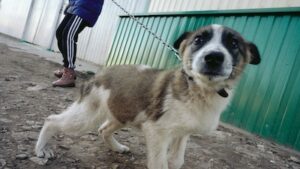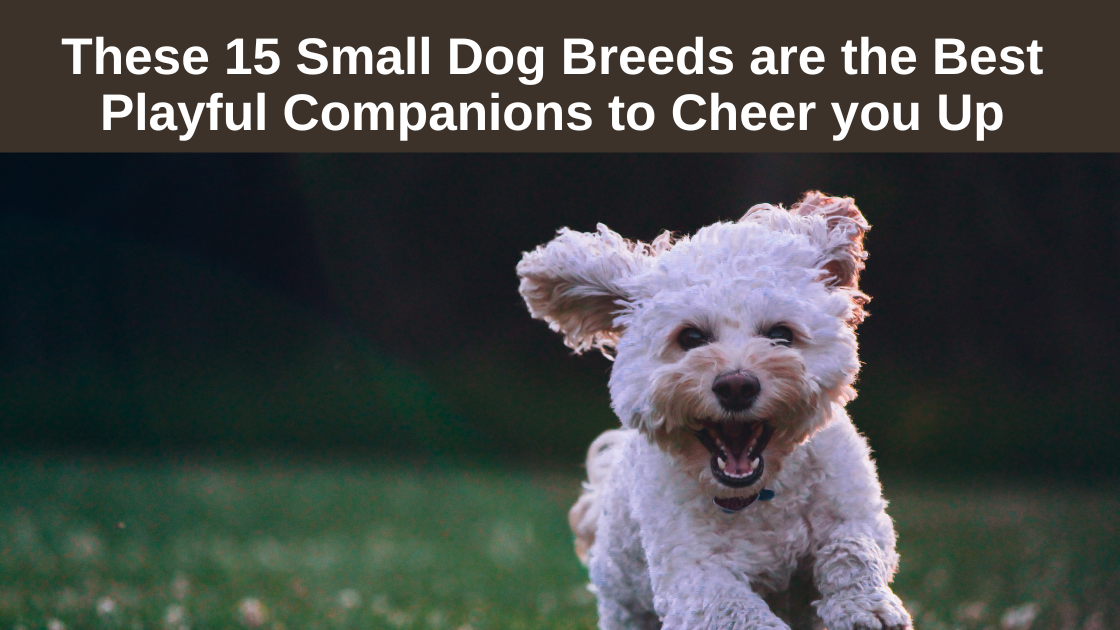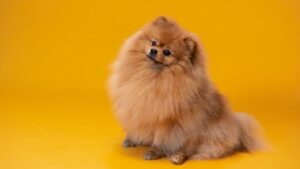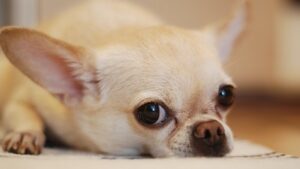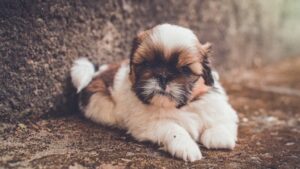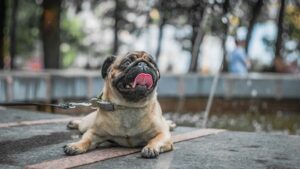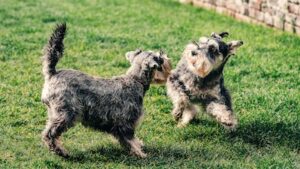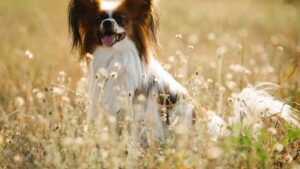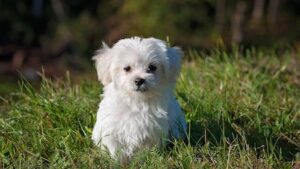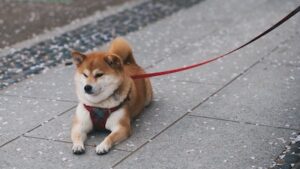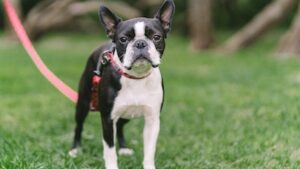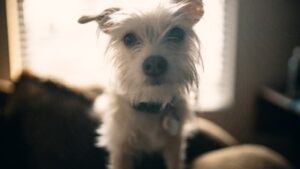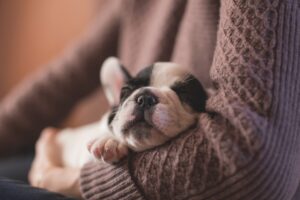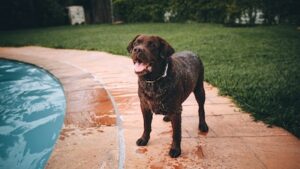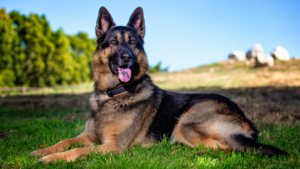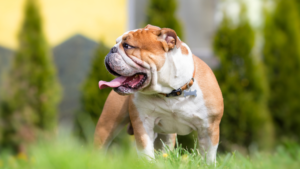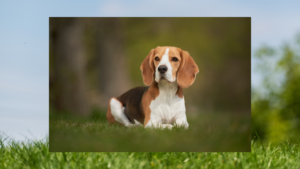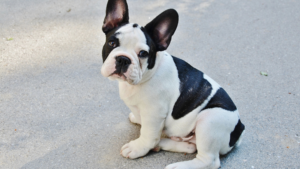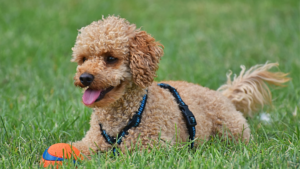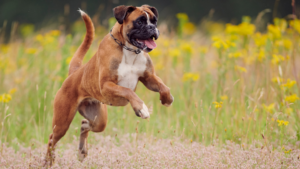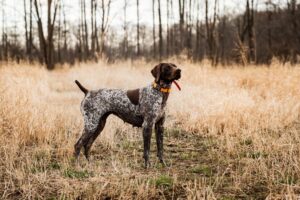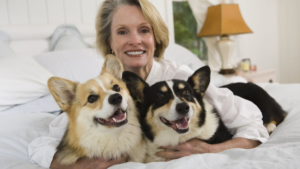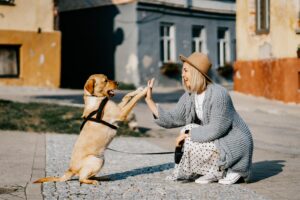For generations, dogs have been said to as man’s best friend. They are devoted, loving, and wonderful companions. Dogs come in many forms, sizes, and kinds, and selecting the right dog breed for your family can be difficult. There are various aspects to consider while selecting a dog to add to your family, including size, energy level, temperament, and personality.
Table of Contents
Introduction
Choosing the right dog breed for your family is an important decision that must be carefully considered. The breeds discussed in this article are only a few examples of family-friendly dogs, each with its own set of features and needs. To ensure compatibility with your family’s lifestyle, it is critical to research and understand the individual needs of any breed you are contemplating.
Remember that providing adequate training, socialization, and affection is crucial for a well-adjusted and happy family dog, regardless of breed. Regular veterinarian care, exercise, and grooming are also essential for their overall health and well-being.
Take your time, include your family in the decision-making process, and seek advice from reputable breeders, rescue organizations, or shelters. Finding the right dog breed for your family will bring you joy, love, and countless cherished memories for years to come.
Dog Breeds for Families
In this article, we will look at some of the right dog breeds for your family and why they are such good options.
Labrador Retriever
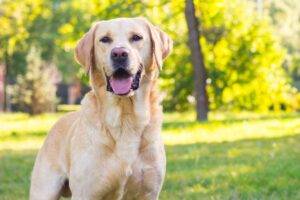
The adaptability of Labrador Retrievers is one of their outstanding characteristics. They adapt well to a variety of situations, thriving in both urban and rural settings. Labs can adapt to diverse living environments, whether you live in an apartment or have a large backyard. However, because Labs have moderate to high activity levels, constant exercise is required to keep them physically and cognitively occupied.
Labradors are medium to large, with males measuring 65-80 pounds and females weighing 55-70 pounds. They are available in three basic colors: black, chocolate, and yellow. Labs have a short, dense, and water-resistant coat that needs to be groomed regularly to stay in good condition. Their coats protect them in a variety of weather conditions, making them ideal for outdoor activities.
Labrador Retrievers excel in obedience training and other canine sports due to their great intellect and willingness to please. Activities like agility training, retrieving games, and even therapy work can give cerebral stimulation and deepen the link between the dog and the family.
It’s vital to remember that Labs are gregarious dogs who may develop separation anxiety if left alone for long periods. They thrive on companionship and being valuable members of the family. If you are frequently away from home, you must offer them proper mental and physical stimulation and consider hiring a dog walker or daycare to maintain their well-being.
Labs are typically healthy dogs, however, they are prone to specific problems such as hip and elbow dysplasia, obesity, and progressive retinal atrophy. Regular veterinary check-ups, a balanced diet, and an active lifestyle will help prevent these health conditions and ensure your Labrador companion’s lifetime.
Because of their intelligence and adaptability, Labrador Retrievers are not just excellent household dogs; they are also frequently used as service dogs, therapy dogs, and search-and-rescue dogs. Their amiable demeanor and affectionate attitude make them the right dog breed for your family.
Golden Retriever
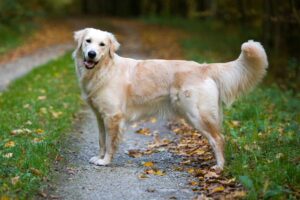
Another popular dog breed that is well-known for its calm and kind demeanor, making it the right dog breed for your family, is the Golden Retriever. They are recognized for being caring and patient, which makes them especially good with children. Golden retrievers are known for their extraordinary love and dedication to their families, forging strong ties that last a lifetime.
Golden Retrievers have a magnificent presence that adds to their attractiveness due to their medium to large size. Males normally weigh 65-75 pounds, while females weigh 55-65 pounds. Their magnificent, golden coats define the breed and give them a regal aspect. Regular grooming is required to keep their coats healthy and avoid matting.
Golden Retrievers are highly intelligent and trainable, in addition to their pleasant temperament. They like obedience training and other canine sports because they are eager to please their owners. Because of their adaptability, they thrive at activities such as agility, tracking, and retrieving games. Participating in these activities not only keeps kids physically healthy but also mentally stimulates them.
Golden retrievers are noted for their adaptability and ability to survive in a variety of living circumstances, whether it’s an apartment in the city or a suburban property with a yard. It is crucial to note, however, that they are an energetic breed that requires regular exercise to stay healthy. Daily walks, playtime, and off-leash activities are critical to their happiness and the prevention of boredom-related behaviors.
Golden Retrievers may be predisposed to specific hereditary diseases such as hip dysplasia, elbow dysplasia, and several types of cancer. Regular veterinary examinations, well-balanced food, and maintaining a healthy weight are critical for their general health. Early detection and treatment of any potential health issues can increase their quality of life and lifespan dramatically.
Golden retrievers are highly social dogs who thrive on human company. They like being a part of family events and may grow depressed if left alone for extended periods. Involving dogs in family vacations, outings, and other social activities improves the link between the dog and the family.
The kind temperament of Golden Retrievers around youngsters is one of their appealing features. They are frequently patient and tolerant, making them excellent playmates for children. However, as with any dog, supervision is required to protect both the child’s and the dog’s safety. It is critical to teach youngsters how to engage with dogs respectfully and responsibly in order to preserve a happy relationship.
Beagle

Beagles are tiny to medium-sized dogs with friendly and outgoing characteristics that make them the right dog breed for your family. Beagles captivate the hearts of both youngsters and adults due to their attractive appearance and playful behavior. Their upbeat personalities and strong energy levels make them ideal companions for active families.
The intelligence of Beagles is one of their distinguishing traits. They are quick learners with a natural curiosity, which may make training them interesting and gratifying. Beagles, on the other hand, have a strong feeling of independence, thus steady and patient training methods work well for this species.
Beagles have a characteristic howl, which is commonly referred to as their “bay.” This distinctive vocalization is profoundly embedded in their hunting instincts. While it can be endearing, Beagles are prone to baying when they smell an attractive scent or when they are bored or worried. Early socialization and training can assist in the management and control of this tendency.
Beagles normally weigh between 20 and 30 pounds and stand between 13 and 15 inches tall at the shoulder. They are agile and athletic due to their tiny yet robust structure. Beagles, due to their tiny to medium size, may adapt well to a variety of living circumstances, including apartments and houses with yards.
Beagles require regular exercise to preserve their physical and mental well-being. They are an extremely energetic breed that thrives on activities that stimulate their senses. To minimize boredom and destructive behavior, daily walks, engaging play sessions, and opportunities to explore their environment are required.
Beagles have a life expectancy of 12-15 years, which is longer than several other dog breeds. They are, nevertheless, prone to some health conditions, such as obesity. Beagles have a voracious appetite and might overeat if their nutrition is not carefully monitored. Maintaining a healthy weight requires a balanced and portion-controlled diet, as well as frequent exercise.
Beagles are often amiable and sociable with both humans and other canines when it comes to their social nature. They enjoy spending time with their family members and are frequently wonderful companions for children. However, interactions between small children and Beagles must be supervised to guarantee the safety and comfort of both parties.
Beagle grooming requirements are relatively minimal. Their short coats are simple to care for, requiring only frequent brushing to remove stray hair and keep their coat healthy. Routine dental care, nail cutting, and ear washing are also required to ensure their overall hygiene.
Bulldog
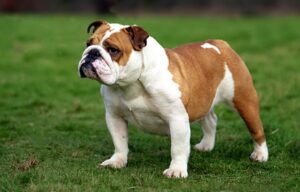
Bulldogs are medium-sized dogs with amiable and gentle personalities that make them excellent family pets. Bulldogs have earned a unique place in the hearts of dog lovers all around the world due to their striking appearance and affectionate personality. They are well-known for being affectionate and loyal, making them excellent companions for both adults and children.
The calm and gentle nature of Bulldogs is one of the primary characteristics that make them excellent for families. They are often tolerant and patient with children, making them the right choice when choosing the right dog for your family. Bulldogs build deep attachments with their family members and enjoy being in their company, whether cuddling on the couch or participating in family activities.
Bulldogs are distinguished by their wrinkled faces, stocky build, and short noses. While their facial wrinkles need to be cleaned regularly to avoid discomfort and infection, Bulldogs are generally low-maintenance in terms of grooming. Their short coats require only periodic brushing to be neat.
Bulldogs may survive in a variety of living conditions due to their small stature and versatility. As long as they receive sufficient care, exercise, and attention, they are suitable for both urban and rural environments. Bulldogs may not be the most energetic breed, but they still need regular exercise to stay healthy and avoid weight gain.
Because of their particular anatomy, Bulldogs are predisposed to specific health difficulties. Their short nostrils can make breathing difficult, particularly in hot or humid weather. Bulldogs are prone to overheating, so it’s critical to keep them in a cool and comfortable environment. Regular veterinary examinations are required to evaluate their health and manage any potential problems.
Proper nutrition is essential for Bulldogs to keep a healthy weight and general health. They tend to acquire weight quickly, so it’s critical to feed them a well-balanced diet and avoid overfeeding. High-quality dog food, portion control, and regular exercise will help Bulldogs stay fit and avoid obesity-related health issues.
Bulldogs are regarded as being kind and calm, making them friendly with other pets in the home. To establish healthy relationships between Bulldogs and other animals, thorough introductions and socialization are required. Supervision is also advised during encounters to avoid potential disputes.
Bulldogs are often intelligent and ready to please their owners when it comes to training. They can, however, exhibit a stubborn streak at times. When it comes to training Bulldogs, patience, positive reinforcement, and consistency are essential. Early socialization and obedience training are critical in shaping their conduct and ensuring they grow up to be well-mannered and obedient family members.
Boxer
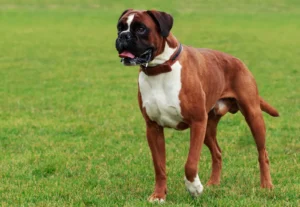
Boxers are medium to large-sized dogs with playful and energetic personalities, making them ideal family dogs and the right alternative when choosing the right dog for your family. Boxers are known for their zest for life and bring a distinct blend of charm, devotion, and protectiveness to the household. They are fantastic companions for youngsters and may adapt well to family dynamics due to their happy and sociable temperament.
Boxers’ playful and energetic demeanor is one of their most distinguishing characteristics. They have wonderful natural energy and zest for life, making them an excellent match for active families. Boxers like active exercises and games like fetch, tug-of-war, and agility training. Because of their high amount of energy, they require regular exercise to keep them physically and mentally occupied.
Boxers are known for their devotion and protective instincts making them an excellent choice when choosing the right dog for your family, in addition to their playful attitude. They build deep relationships with their family members and are said to be especially fond of children. Boxers have an instinct to guard their family and can serve as good watchdogs, warning them of any potential risks or intruders.
Boxers are distinguished by their short snouts, muscular physique, and expressive features. Their short coat requires only periodic brushing to eliminate loose hair and keep their coat appearing shiny. Boxers shed moderately and have low odor, making them an excellent choice for families with allergies or sensitivities.
Boxers require socialization to develop into well-behaved and well-adjusted family dogs. Early socialization exposes kids to a variety of people, animals, and situations, which helps them acquire acceptable manners and behavior. Obedience training is also necessary to create limits and guarantee that commands are understood. Boxers are intelligent and responsive, making positive reinforcement training strategies very simple.
While Boxers are normally amiable, their protective instincts may cause them to be wary of strangers or unknown animals. Early and continuing socialization can aid in the prevention of potential behavioral disorders. When introducing Boxers to new people or pets, it is best to supervise to ensure smooth and positive contact.
Proper healthcare is vital for keeping Boxers healthy. Regular veterinary examinations, immunizations, and flea, tick, and parasite prevention treatments are required. Boxers are predisposed to various health issues, such as hip dysplasia, heart disease, and certain types of cancer. Responsible breeding techniques and health checkups can help lower the chance of inherited health problems.
Note: There might be affiliate links mentioned here. We may receive a commission if you purchase a product through an affiliate link. There is no additional charge for you. Please do your own research before making any online purchases.
Poodle
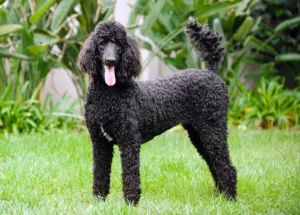
Poodles are adaptable and intelligent canines who make ideal family pets. They are ideal for families of all sizes due to their sociable and clever nature making them the right choice when choosing the right dog for your family. Poodles are available in three sizes: regular, miniature, and toy, providing possibilities to meet a variety of living situations and tastes.
Poodles are known for their amiable and social personalities. They are recognized for their enjoyment of human companionship and being an active member of the family. Poodles thrive on company and are adaptable to a variety of locations, including apartments and houses with yards. They are loving, loyal, and ready to please, making them an excellent choice for families choosing the right dog for your family.
Poodles are intelligent and trainable, which contributes to their popularity as household pets. They learn quickly and respond well to positive reinforcement training approaches. Because of their intelligence and want to please, they are ideal for homes with children because they can readily adjust to diverse family dynamics and lifestyles. Poodles excel in a wide range of dog sports and activities, including obedience, agility, and even therapeutic work.
Poodles’ hypoallergenic coat is another desirable feature, especially for families with allergies or sensitivities. Poodles have a dense, curly, or corded coat that reduces shedding and dander, lowering the danger of allergy triggers. It is crucial to note, however, that frequent grooming is required to keep the coat healthy and prevent matting. Regular brushing at home or by a professional will help keep the Poodle’s coat clean and tangle-free.
Poodles live for 10 to 15 years, providing families with long-term companionship. Responsible breeding procedures, good nutrition, frequent exercise, and normal veterinarian care all contribute to their longevity. Poodles require well-balanced food, and regular exercise to keep them cognitively and physically challenged and care for their overall well-being.
When choosing the right dog for your family, it is critical to evaluate the dog’s size about the age and size of the children. Standard Poodles are larger and more robust, making them a better choice for families with older children who can handle their size. Because of their smaller size, miniature and toy Poodles are more suited to households with younger children.
Socialization is essential for Poodles to grow into well-mannered and confident canines. Early socialization with a variety of people, animals, and situations will help them become more comfortable and adaptable. This will enable children to deal with a variety of social situations while minimizing potential behavioral concerns.
Cavalier King Charles Spaniel

Cavalier King Charles Spaniels are well-loved family dogs recognized for their gentle and friendly demeanor. These petite and graceful canines are ideal when looking to select a dog breed for your family particularly those with children. Cavaliers are well-suited to provide affection and friendship to all members of the family due to their pleasant and agreeable demeanor.
The kind and amiable demeanor of Cavalier King Charles Spaniels is one of their distinguishing characteristics. They are natural buddies who flourish when they are near their family. Cavaliers have a great desire to please, and their loving nature makes them excellent playmates for kids of all ages. Their gentle and tolerant demeanor allows them to engage well with children, making them an excellent choice for families looking for a dog that can interact with children securely and affectionately.
Cavaliers are flexible canines who may thrive in a variety of environments. Cavaliers can adjust to the available space as long as they receive the love and attention they desire, whether they live in a small apartment or a larger house with a yard. While kids enjoy spending time with their families indoors, they also enjoy outside activities and can cheerfully explore their surroundings on walks or playing in a safe, supervised environment.
Because of their want to please, training a Cavalier King Charles Spaniel is a pleasurable process. They learn quickly because they respond effectively to positive reinforcement approaches. Cavaliers are noted for their intelligence and versatility, which allows them to excel in basic obedience training as well as more advanced activities like agility and therapy work. Training sessions with your Cavalier not only improve your bond but also provide cerebral stimulation and assist in meeting your need for companionship.
Cavaliers are recognized for their outstanding physical traits making them an excellent choice when looking to select a dog breed for your family as well as their kind nature. They have expressive eyes that emanate warmth and charm, adding to their overall attractiveness. To preserve their smooth, medium-length coats in good shape, they must be groomed regularly. Brushing their fur regularly helps to avoid tangles and mats, as well as preserve the health and beauty of their coat. To ensure your Cavalier is comfortable with the grooming process, set a grooming regimen early on.
Cavalier King Charles Spaniels have a lifespan of 9 to 14 years, providing your family with years of love and affection. It is critical to give them balanced food, regular exercise, and routine veterinarian treatment to ensure their overall well-being. Cavaliers are typically healthy dogs, but it’s vital to be aware of any potential health issues that may afflict the breed, including heart ailments or genetic disorders. Regular check-ups and early detection of any health issues are critical to their well-being.
It is critical to create a safe and supportive environment when introducing a Cavalier into your family. This includes supervising interactions between young children and the dog to guarantee the comfort and safety of both parties. Early socializing is also important for Cavaliers to develop into well-rounded, confident canines. Positive interactions with various people, animals, and places will mold their sociability and lessen the probability of behavioral difficulties.
Bernese Mountain Dog
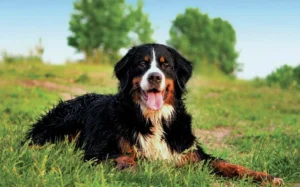
The Bernese Mountain Dog is a fantastic choice for a massive and gentle giant to add to your household. Berners are known for their amiable and quiet demeanor and make excellent family companions when you select a dog breed for your family. Their kind and patient attitude, mixed with their commanding stature, produces a stunning presence that brings delight and comfort to all members of the family. The kind and tranquil temperament of Bernese Mountain Dogs is one of their most distinguishing qualities. They are predisposed to build deep ties with their human family members and are especially gentle and patient with children. Berners are loving and protective of their loved ones, making them dependable and careful companions. Their collected and tranquil personality enables them to adapt effectively to family life and many social situations.
Bernese Mountain Dogs have a thick double coat, which contributes to their magnificent appearance. While their lush fur is lovely, it must be groomed regularly to maintain it healthy and clear of mats. Brushing their coat a few times a week helps to remove stray hair, prevent tangles, and keep their fur clean. Furthermore, Berners shed lightly, so grooming regularly can help keep shedding under control and reduce the amount of loose hair around the house.
These dogs enjoy participating in family events and are happiest when they can spend quality time with their owners. Berners appreciate outdoor activities and are excellent companions for hiking, camping, or simply strolling around the neighborhood.
Physical activity with your Bernese Mountain Dog not only benefits their physical health but also enhances your bond and gives them cerebral stimulation.
Bernese Mountain Dogs live for approximately 6 to 8 years. While their lifespan is shorter than that of some other breeds, the years spent with a Berner are filled with love, loyalty, and fond memories. It is critical to feed them a well-balanced diet that promotes their growth and overall well-being.
Regular exercise is also necessary to keep them physically and psychologically fit. Excessive exercise at a young age, on the other hand, may put a strain on their growing joints, so it’s critical to speak with a veterinarian to decide on an appropriate exercise plan for your Bernese Mountain Dog.
When looking to select a dog breed for your family like the Bernese Mountain Dog, it is critical to give them a supportive and loving environment. They thrive on company and may have separation anxiety if left alone for extended periods. Involving them in family activities, offering cerebral stimulation through training and puzzle toys, and creating a warm and secure environment in the home will make them feel loved and secure.
It’s important to note that Bernese Mountain Dogs are prone to specific health problems, such as hip and elbow dysplasia, as well as certain types of cancer. Regular veterinary examinations and early detection of any health issues are critical to their well-being. Furthermore, good breeding techniques and parent dog health tests can help lessen the risk of inherited disorders.
Vizsla
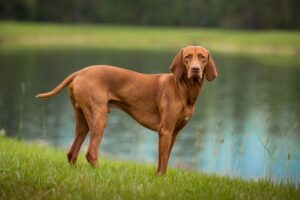
The Vizsla is an excellent choice for a family pet if you want a medium-sized dog with a vibrant and friendly attitude. Vizslas, known for their kind and tolerant demeanor, make excellent friends with youngsters of all ages. They add a lively and playful presence to any household with their vibrant attitude and caring demeanor.
If you looking to select a dog breed for your family that is extremely friendly then Vizsla should be on your list. They are recognized for their inexhaustible energy and excitement, which makes them wonderful children’s playmates. Vizslas are kind and tolerant dogs recognized for their tolerance and versatility, allowing them to build deep ties with family members of all ages. Their warm and loving temperament makes them excellent companions and guarantees that they thrive in a loving and supportive home environment.
Vizslas are high-energy dogs who need frequent exercise to stay happy and healthy. They thrive in active households that enjoy outdoor sports like running, hiking, and fetch. Giving kids plenty of opportunities for physical activity not only helps them burn off energy but also benefits their mental health. Regular exercise routines and interactive play sessions are vital for preventing boredom and promoting a healthy lifestyle for your Vizsla.
These dogs have a short, thick coat that is easy to keep clean. They shed very little, which is beneficial for families with allergies or those who like a cleaner living environment. Regular brushing keeps their coat clean and free of stray hair, while washing on occasion keeps their overall hygiene in check. Because Vizslas are exceptionally sensitive dogs, adopting gentle grooming techniques and offering positive reinforcement during grooming sessions is critical to ensuring a great experience for both you and your pet.
Vizslas are clever dogs who respond well to training. They are eager to please their owners, which makes them extremely trainable and flexible to a wide range of commands and tasks. Early socialization and persistent training are critical for shaping their behavior and ensuring they grow into well-mannered and obedient dogs. Positive reinforcement training strategies, such as prizes and praise, enable you and your Vizsla to form a deep bond while rewarding desired actions.
These dogs have a life expectancy of between 12 and 15 years. Regular veterinary check-ups are required to ensure their long-term health and well-being. It is critical to maintain their vaccines, parasite prevention, and dental care. A well-balanced and nutritious diet appropriate for their age and activity level is critical to their overall health and vigor. Mental stimulation through puzzle toys, interactive games, and training sessions is also important in reducing boredom and encouraging cognitive growth in children.
When looking to select a dog breed for your family like the Vizslas, make sure they have enough cerebral stimulation. These dogs thrive on connection and may develop separation anxiety if left alone for extended periods. Include them in family activities, provide them with stimulating toys, and set aside quality time for training and play sessions to keep them happy and content.
Collie
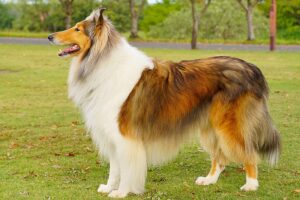
Collies are bright, loyal dogs if you are looking to select a dog breed for your family. They are recognized for being kind and patient, making them excellent companions for children. Collies have a long history of being dependable and faithful family dogs, and their adaptability makes them ideal for a variety of family lives and surroundings.
Collies’ intellect is one of its most distinguishing characteristics. They are bright dogs who want to please their people. As a result, they are extremely trainable and quick to pick up new commands and tricks. Collies thrive at obedience training and are frequently seen competing in agility contests because of their agility and ability to follow directions. Their intelligence enables them to comprehend and respond to the demands of their family, making them attentive and dependable friends.
Collies have a gorgeous, long double coat that needs to be groomed regularly to stay in good condition. The coat has a rich appearance and is available in several hues, including sable and white, tricolor, and blue merle. Brushing regularly helps to avoid matting and keeps the coat clean and healthy. Periodic showers and cutting of the hair around the ears and paws also help to maintain their overall hygiene. Grooming sessions are also an excellent opportunity to bond with and trust your Collie.
Collies are recognized for their patience, especially with children, in addition to their gentle demeanor. They are patient and empathetic, making them excellent companions for families with children. Collies frequently create strong ties with children and adopt a protective role, protecting their safety and well-being. Their gentle and tranquil nature enables them to be observant companions, keeping a close eye on family members and their surroundings. Collies require regular exercise to preserve their physical and emotional well-being. While they are not as energetic as some other breeds, they still require regular exercise to stay physically and mentally fit. Daily walks, engaging play sessions, and cerebral exercises such as obedience training help them achieve their activity needs. Physical activity with your Collie not only enhances their general health but also strengthens your bond with your beloved pet.
Collies have an average lifespan of 12 to 14 years. Regular veterinarian treatment is required to ensure their longevity and well-being. Routine check-ups, vaccines, parasite prevention, and dental treatment are all included. Collies are also predisposed to certain health disorders, like hip dysplasia and progressive retinal atrophy, so it’s critical to be aware of these dangers and obtain appropriate veterinary care when necessary. It is also critical to provide balanced and nutritious food appropriate for their age and activity level to maintain their best health.
When choosing a Collie as a family pet, it is critical to offer a caring and stimulating environment for them. They demand regular social engagement with family members and thrive on company. Involving children in family activities and outings, as well as devoting quality time to training and play, helps to meet their need for human interaction and keeps them from feeling lonely or bored. Collies are most content when they are a part of the family and receive affection, attention, and mental stimulation.
Best Dog Breeds for Families in India
Choosing the right dog breed for your family is a crucial decision, especially when considering the unique climate and living conditions in India. The ideal family dog should be friendly, adaptable, and good with children. Here are some of the best dog breeds for families in India, along with their characteristics, care requirements, and why they make great family pets.
1. Golden Retriever
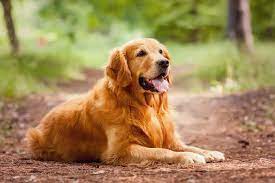
Characteristics: Golden Retrievers are known for their friendly and tolerant nature. They are highly intelligent, making them easy to train. These dogs are also very loyal and affectionate, making them excellent companions for children.
Care Requirements: Golden Retrievers require regular exercise to keep them healthy and happy. They have a thick double coat that needs regular grooming to prevent matting and shedding. These dogs thrive on human interaction and do not do well if left alone for long periods.
Why They Are Great for Families: Golden Retrievers are patient and gentle, making them ideal for families with young children. Their playful nature ensures they get along well with kids and other pets. They are also known for their protective instincts, providing an added sense of security for the family.
2. Labrador Retriever

Characteristics: Labrador Retrievers are one of the most popular dog breeds worldwide. They are known for their friendly, outgoing, and energetic nature. Labs are highly intelligent and eager to please, which makes them easy to train.
Care Requirements: Labradors need plenty of exercise to burn off their high energy levels. They have a short, dense coat that requires minimal grooming. Regular vet check-ups are essential to monitor their health, as they are prone to obesity if not exercised properly.
Why They Are Great for Families: Labradors are incredibly patient and gentle with children. Their playful and energetic nature makes them great playmates for kids. They are also very loyal and protective, making them excellent family guardians.
3. Beagle
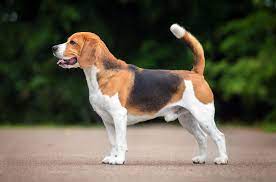
Characteristics: Beagles are small to medium-sized dogs known for their friendly and curious nature. They have a strong sense of smell and are often used as detection dogs. Beagles are intelligent and have a playful personality.
Care Requirements: Beagles require regular exercise to keep them mentally and physically stimulated. They have a short coat that is easy to groom. Beagles are prone to obesity, so it’s important to monitor their diet and exercise regularly.
Why They Are Great for Families: Beagles are great with children due to their playful and gentle nature. They are also very social and get along well with other pets. Their small size makes them suitable for apartment living, provided they get enough exercise.
4. Pug

Characteristics: Pugs are small, sturdy dogs with a distinctive wrinkled face. They are known for their charming and affectionate nature. Pugs are playful and enjoy being the center of attention.
Care Requirements: Pugs require moderate exercise to keep them healthy. They have a short coat that is easy to groom, but their facial wrinkles need regular cleaning to prevent infections. Pugs are prone to respiratory issues due to their short snouts, so it’s important to avoid overexertion.
Why They Are Great for Families: Pugs are great companions for children due to their playful and affectionate nature. They are also very adaptable and can live comfortably in apartments. Pugs are known for their loyalty and love to be around their family.
5. German Shepherd

Characteristics: German Shepherds are large, intelligent, and versatile dogs. They are known for their loyalty, courage, and protective instincts. German Shepherds are often used as working dogs in various roles, including police and military work.
Care Requirements: German Shepherds require regular exercise to keep them physically and mentally stimulated. They have a double coat that needs regular grooming to prevent shedding. These dogs thrive on training and need a firm and consistent handler.
Why They Are Great for Families: German Shepherds are very protective of their families, making them excellent guard dogs. They are also very loyal and form strong bonds with their owners. Their intelligence and trainability make them great companions for active families.
6. Rottweiler

Characteristics: Rottweilers are large, powerful dogs known for their strength and protective instincts. They are confident, calm, and loyal. Rottweilers are intelligent and can be trained for various tasks.
Care Requirements: Rottweilers need regular exercise to keep them healthy and prevent obesity. They have a short coat that requires minimal grooming. Early socialization and training are crucial to ensure they develop into well-behaved adults.
Why They Are Great for Families: Rottweilers are very protective of their families and make excellent guard dogs. They are also very loyal and affectionate with their owners. With proper training and socialization, they can be gentle and patient with children.
7. Cocker Spaniel
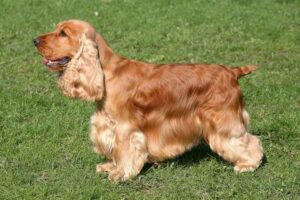
Characteristics: Cocker Spaniels are medium-sized dogs known for their friendly and affectionate nature. They have a beautiful, silky coat and expressive eyes. Cocker Spaniels are intelligent and eager to please.
Care Requirements: Cocker Spaniels require regular exercise to keep them healthy and happy. Their long coat needs regular grooming to prevent matting and tangling. These dogs thrive on human interaction and do not do well if left alone for long periods.
Why They Are Great for Families: Cocker Spaniels are great with children due to their gentle and playful nature. They are also very social and get along well with other pets. Their affectionate nature makes them excellent companions for families.
8. Indian Pariah Dog

Characteristics: The Indian Pariah Dog is an ancient and hardy breed native to India. They are known for their intelligence, loyalty, and adaptability. Indian Pariah Dogs are medium-sized with a short coat.
Care Requirements: Indian Pariah Dogs are low-maintenance and require minimal grooming. They are very adaptable and can thrive in various living conditions. Regular exercise and a balanced diet are essential to keep them healthy.
Why They Are Great for Families: Indian Pariah Dogs are very loyal and protective of their families. They are also very intelligent and easy to train. Their adaptability makes them suitable for various living conditions, including apartments.
9. Dalmatian
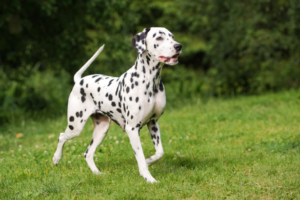
Characteristics: Dalmatians are medium-sized dogs known for their distinctive spotted coat. They are energetic, intelligent, and playful. Dalmatians are also known for their endurance and stamina.
Care Requirements: Dalmatians require regular exercise to keep them healthy and prevent boredom. They have a short coat that is easy to groom. Dalmatians are prone to certain health issues, so regular vet check-ups are essential.
Why They Are Great for Families: Dalmatians are great with children due to their playful and energetic nature. They are also very loyal and protective of their families. Their unique appearance and friendly personality make them excellent family pets.
10. Indian Spitz
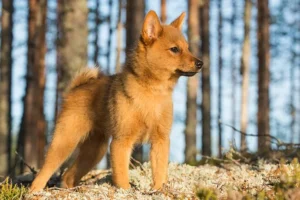
Characteristics: The Indian Spitz is a small to medium-sized dog known for its fluffy white coat and lively personality. They are intelligent, alert, and friendly. Indian Spitz dogs are very adaptable and can thrive in various living conditions.
Care Requirements: Indian Spitz dogs require regular exercise to keep them healthy and happy. Their fluffy coat needs regular grooming to prevent matting and tangling. These dogs thrive on human interaction and do not do well if left alone for long periods.
Why They Are Great for Families: Indian Spitz dogs are great with children due to their playful and affectionate nature. They are also very social and get along well with other pets. Their adaptability makes them suitable for various living conditions, including apartments.
11. Boxer

Characteristics: Boxers are medium to large-sized dogs known for their muscular build and playful nature. They are energetic, intelligent, and loyal. Boxers are also known for their protective instincts.
Care Requirements: Boxers require regular exercise to keep them healthy and prevent boredom. They have a short coat that is easy to groom. Boxers are prone to certain health issues, so regular vet check-ups are essential.
Why They Are Great for Families: Boxers are great with children due to their playful and energetic nature. They are also very loyal and protective of their families. Their friendly personality and protective instincts make them excellent family pets.
12. Dachshund
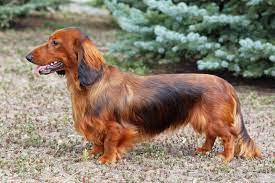
Characteristics: Dachshunds are small dogs known for their long bodies and short legs. They are intelligent, curious, and playful. Dachshunds come in various coat types, including smooth, long-haired, and wire-haired.
Care Requirements: Dachshunds require regular exercise to keep them healthy and prevent obesity. Their coat needs regular grooming, depending on the type. Dachshunds are prone to certain health issues, so regular vet check-ups are essential.
Why They Are Great for Families: Dachshunds are great with children due to their playful and affectionate nature. They are also very loyal and protective of their families. Their small size makes them suitable for apartment living, provided they get enough exercise.
13. Chihuahua

Characteristics: Chihuahuas are small dogs known for their big personalities. They are intelligent, alert, and loyal. Chihuahuas are very adaptable and can thrive in various living conditions.
Care Requirements: Chihuahuas require regular exercise to keep them healthy and happy. Their coat needs minimal grooming, but regular brushing is recommended. Chihuahuas are prone to certain health issues, so regular vet check-ups are essential.
Why They Are Great for Families: Chihuahuas are great with children due to their playful and affectionate nature. They are also very loyal and protective of their families. Their small size makes them suitable for apartment living, provided they get enough exercise. Chihuahuas are known for their big personalities and can be quite entertaining, making them a delightful addition to any family.
14. Shih Tzu
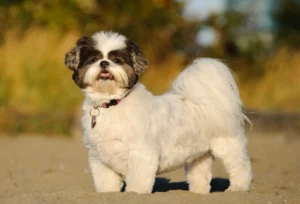
Characteristics: Shih Tzus are small, sturdy dogs with a long, flowing coat. They are known for their friendly and affectionate nature. Shih Tzus are also very adaptable and can thrive in various living conditions.
Care Requirements: Shih Tzus require regular grooming to maintain their long coat. They need moderate exercise to keep them healthy and happy. Regular vet check-ups are essential to monitor their health, as they are prone to certain genetic conditions.
Why They Are Great for Families: Shih Tzus are great with children due to their gentle and playful nature. They are also very social and get along well with other pets. Their small size and adaptability make them suitable for apartment living.
15. Pomeranian
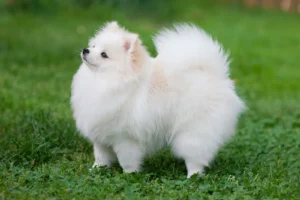
Characteristics: Pomeranians are small, fluffy dogs known for their lively and outgoing personality. They are intelligent, alert, and very loyal to their families. Pomeranians have a distinctive double coat that requires regular grooming.
Care Requirements: Pomeranians need regular exercise to keep them healthy and prevent obesity. Their double coat requires frequent brushing to prevent matting and tangling. Pomeranians are prone to dental issues, so regular dental care is essential.
Why They Are Great for Families: Pomeranians are great with children due to their playful and affectionate nature. They are also very loyal and protective of their families. Their small size makes them suitable for apartment living, provided they get enough exercise.
16. Indian Mastiff (Bully Kutta)

Characteristics: The Indian Mastiff, also known as the Bully Kutta, is a large and powerful breed native to India. They are known for their strength, loyalty, and protective instincts. Indian Mastiffs are intelligent and can be trained for various tasks.
Care Requirements: Indian Mastiffs require regular exercise to keep them healthy and prevent boredom. They have a short coat that requires minimal grooming. Early socialization and training are crucial to ensure they develop into well-behaved adults.
Why They Are Great for Families: Indian Mastiffs are very protective of their families and make excellent guard dogs. They are also very loyal and affectionate with their owners. With proper training and socialization, they can be gentle and patient with children.
17. Great Dane
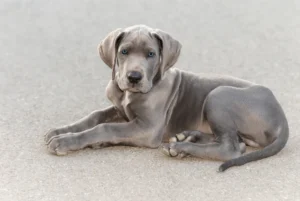
Characteristics: Great Danes are large, gentle giants known for their friendly and affectionate nature. They are intelligent, loyal, and very protective of their families. Great Danes have a short coat that requires minimal grooming.
Care Requirements: Great Danes need regular exercise to keep them healthy and prevent obesity. Their short coat is easy to groom, but they are prone to certain health issues, so regular vet check-ups are essential. Great Danes thrive on human interaction and do not do well if left alone for long periods.
Why They Are Great for Families: Great Danes are great with children due to their gentle and patient nature. They are also very loyal and protective of their families. Despite their large size, they can adapt to apartment living if they get enough exercise.\
Family Guard Dogs
Family guard dogs are breeds that have been specifically bred and trained to protect their families and homes. These dogs are known for their loyalty, bravery, and protective instincts. Here are some of the best family guard dogs:
German Shepherd
- Characteristics: Intelligent, loyal, and versatile. German Shepherds are often used in police and military roles due to their protective nature.
- Why They Are Great: They are highly trainable and form strong bonds with their families, making them excellent protectors.
Rottweiler
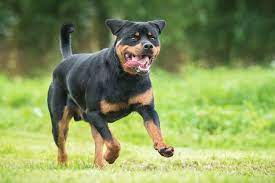
- Characteristics: Strong, confident, and fearless. Rottweilers are known for their protective instincts and loyalty.
- Why They Are Great: They are very protective of their families and can be gentle and affectionate with proper training and socialization.
Doberman Pinscher
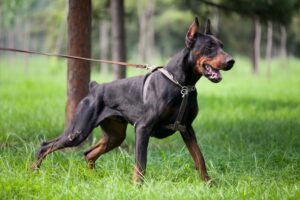
- Characteristics: Alert, energetic, and intelligent. Dobermans are known for their sleek appearance and protective nature.
- Why They Are Great: They are highly trainable and make excellent guard dogs due to their loyalty and alertness.
Bullmastiff
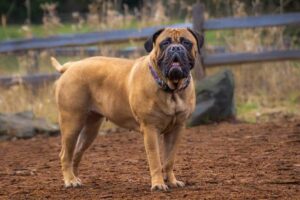
- Characteristics: Powerful, loyal, and protective. Bullmastiffs are known for their strength and calm demeanor.
- Why They Are Great: They are natural guardians and are very protective of their families, making them excellent guard dogs.
Belgian Malinois
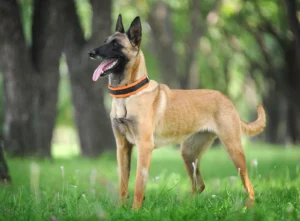
- Characteristics: Energetic, intelligent, and loyal. Belgian Malinois are often used in police and military roles.
- Why They Are Great: They are highly trainable and have strong protective instincts, making them excellent family guard dogs.
Family Protection Dogs
Family protection dogs are trained to provide personal protection to their owners and their families. These dogs are not only loyal companions but also serve as a first line of defense against potential threats. Here are some of the best family protection dogs:
Cane Corso

- Characteristics: Strong, confident, and protective. Cane Corsos are known for their muscular build and protective nature.
- Why They Are Great: They are very loyal and protective of their families, making them excellent protection dogs.
Boxer
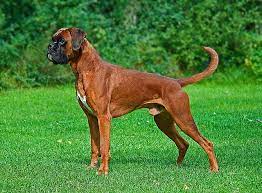
- Characteristics: Energetic, playful, and loyal. Boxers are known for their muscular build and protective instincts.
- Why They Are Great: They are very protective of their families and are great with children, making them excellent family protection dogs.
Great Dane

- Characteristics: Gentle, loyal, and protective. Great Danes are known for their large size and gentle nature.
- Why They Are Great:Despite their size, they are very gentle with children and are protective of their families.
Akita

- Characteristics: Loyal, independent, and protective. Akitas are known for their strong protective instincts.
- Why They Are Great: They are very loyal and protective of their families, making them excellent protection dogs.
Rhodesian Ridgeback

- Characteristics: Strong, independent, and protective. Rhodesian Ridgebacks are known for their hunting and protective instincts.
- Why They Are Great: They are very protective of their families and are excellent guard dogs.
Family Security Dogs
Family security dogs are trained to provide security and peace of mind to their owners. These dogs are not only loyal companions but also serve as a deterrent to potential intruders. Here are some of the best family security dogs:
Tibetan Mastiff

- Characteristics: Strong, independent, and protective. Tibetan Mastiffs are known for their large size and protective nature.
- Why They Are Great: They are very protective of their families and are excellent security dogs.
Caucasian Shepherd Dog

- Characteristics: Strong, fearless, and protective. Caucasian Shepherd Dogs are known for their large size and protective instincts.
- Why They Are Great: They are very protective of their families and are excellent security dogs.
Anatolian Shepherd
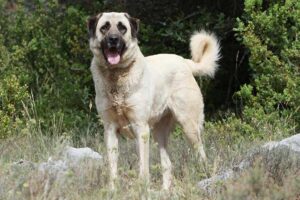
- Characteristics: Independent, loyal, and protective. Anatolian Shepherds are known for their strong protective instincts.
- Why They Are Great: They are very protective of their families and are excellent security dogs.
Black Russian Terrier
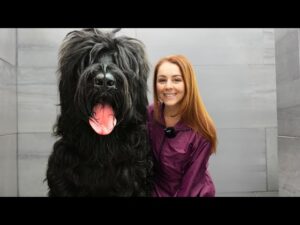
- Characteristics: Strong, intelligent, and protective. Black Russian Terriers are known for their protective nature.
- Why They Are Great: They are very protective of their families and are excellent security dogs.
Estrela Mountain Dog
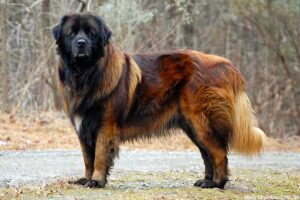
- Characteristics: Loyal, protective, and intelligent. Estrela Mountain Dogs are known for their protective instincts.
- Why They Are Great: They are very protective of their families and are excellent security dogs.
Family Dog Price
The cost of owning a family dog in can vary widely depending on the breed, pedigree, and location. Here are some average price ranges for popular family dog breeds across the world:
Table with average prices of popular family dog breeds in India, the USA, and the UK:
| Dog Breed | India (₹) | USA ($) | UK (£) |
|---|---|---|---|
| Labrador Retriever | 15,000 – 20,000 | 400 – 1,500 | 500 – 2,000 |
| German Shepherd | 18,000 – 45,000 | 500 – 2,500 | 500 – 2,000 |
| Golden Retriever | 25,000 – 40,000 | 500 – 3,000 | 500 – 3,000 |
| Beagle | 8,000 – 16,000 | 500 – 2,000 | 500 – 1,500 |
| Boxer | 6,000 – 18,000 | 500 – 2,500 | 500 – 2,000 |
| Pug | 6,000 – 15,000 | 500 – 2,000 | 500 – 1,500 |
| Rottweiler | 7,000 – 20,000 | 1,000 – 3,000 | 1,000 – 3,000 |
| Dachshund | 5,000 – 12,000 | 500 – 1,500 | 500 – 1,500 |
| Indian Spitz | 4,000 – 8,000 | N/A | N/A |
| Pomeranian | 3,000 – 8,000 | 500 – 1,500 | 500 – 1,500 |
| Great Dane | 7,500 – 25,000 | 1,000 – 3,000 | 1,000 – 3,000 |
| Shih Tzu | 20,000 – 30,000 | 500 – 2,500 | 500 – 2,000 |
| Chihuahua | 4,000 – 25,000 | 500 – 2,000 | 500 – 1,500 |
| Dalmatian | 6,000 – 15,000 | 500 – 2,000 | 500 – 2,000 |
| Indian Mastiff | 25,000 – 40,000 | N/A | N/A |
These prices can vary based on factors such as the breeder’s reputation, the dog’s lineage, and the dog’s health and vaccination status. It’s important to do thorough research and choose a reputable breeder to ensure you get a healthy and well-bred dog.
Conclusion
When looking to select a dog breed for your family, consider aspects such as size, energy level, temperament, and grooming needs. Labrador Retrievers, Golden Retrievers, Beagles, Bulldogs, Poodles, Cavalier King Charles Spaniels, Bernese Mountain Dogs, Vizslas, Collies, and the other breeds described in this article are all great family dogs.
It’s important to note, however, that each dog is an individual, and their upbringing and socialization have a huge impact on their behavior and compatibility with children. Take the time to investigate the individual breed and consult with breeders or rescue organizations before bringing a dog into your home. Spending time with the dog, whether through visits or fostering, can help you learn their personality and whether or not they will be a suitable fit for your family.
Keep in mind that owning a dog is a lifetime commitment. To thrive and become well-adjusted family members, dogs require proper training, socialization, love, and care. Their general health and well-being are dependent on regular veterinary treatment, exercise, and grooming.
FAQs
Do Labrador Retrievers get along well with children?
Labrador Retrievers are noted for being sociable and outgoing, making them excellent with youngsters. They are devoted, patient, and gentle, making them excellent family pets.
How much exercise do Golden Retrievers require?
Yes, Golden Retrievers are an active breed that needs to be exercised daily to keep them physically and mentally challenged. Their well-being is dependent on daily walks, playtime, and outside activities.
Are Beagles able to live in apartments?
Yes, Beagles may adjust well to apartment living if they get enough exercise and mental stimulation. Regular walks and playtime are required to keep them entertained and prevent boredom.
Are Bulldogs appropriate for households with young children?
Because of their loving and gentle disposition, bulldogs are excellent companions for families, including those with little children. However, as with any dog, children must be supervised and taught how to interact with dogs.
Do Boxers get along with other animals?
If properly socialized from an early age, Boxers can get along nicely with other pets. Early and pleasant interactions with other animals are essential for a healthy coexistence.
Are Poodles hypoallergenic?
Yes, Poodles are hypoallergenic since they have hair rather than fur and create fewer allergic chemicals. It is crucial to note, however, that individual sensitivities may vary, and some people with severe allergies may still be affected.
Are there any health issues unique to Cavalier King Charles Spaniels?
Cavalier King Charles Spaniels are prone to a variety of health concerns, including heart disease, ear infections, and eye problems. Regular veterinary examinations and treatment can assist in mitigating these hazards.
Are Bernese Mountain Dogs able to live in warmer climates?
Bernese Mountain Dogs have a thick double coat and prefer cooler weather. They may suffer in hot and humid situations, so giving appropriate shade and water, as well as preventing excessive exertion during hot weather, is critical.
Are Vizslas good for inexperienced dog owners?
Vizslas are a high-energy breed that requires skilled and dedicated owners. While they can make excellent family pets, their high energy levels, and exercise requirements may need owners with the time and dedication to meet their needs.
How much physical activity do Collies require?
Collies are an energetic breed that needs to be exercised regularly. Daily walks, playtime, and cerebral stimulation through training or interactive toys are essential for their physical and mental well-being.










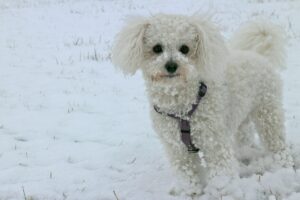


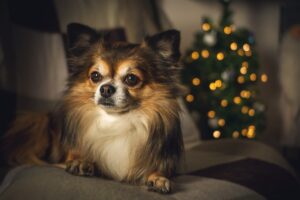


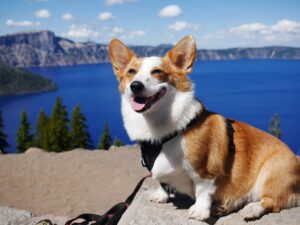 12. Corgi: Corgis, despite their modest size, may adjust well to apartment living if given enough exercise and mental stimulation. They are wise, friendly, and devoted companions. Corgis have a moderate amount of energy and require regular exercise to stay happy and healthy.
12. Corgi: Corgis, despite their modest size, may adjust well to apartment living if given enough exercise and mental stimulation. They are wise, friendly, and devoted companions. Corgis have a moderate amount of energy and require regular exercise to stay happy and healthy.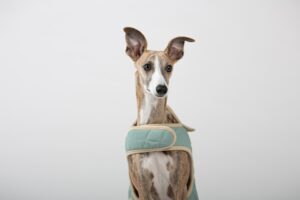 13. Greyhound: Greyhounds, contrary to popular thought, make wonderful apartment dogs.
13. Greyhound: Greyhounds, contrary to popular thought, make wonderful apartment dogs. 




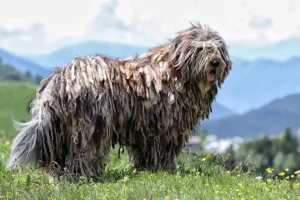


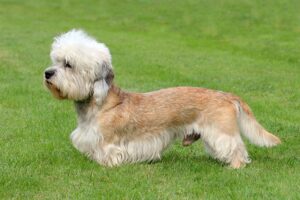
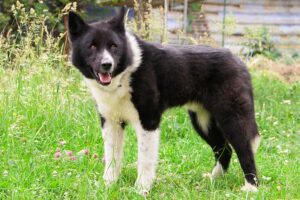



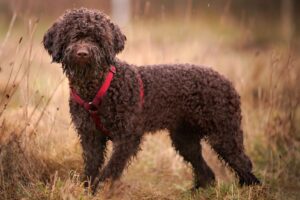


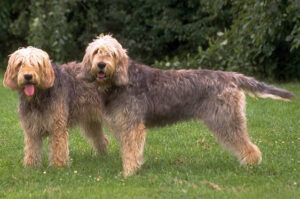



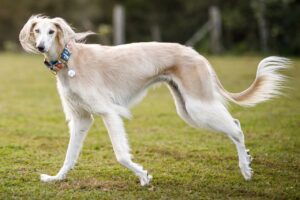
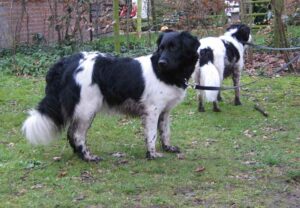


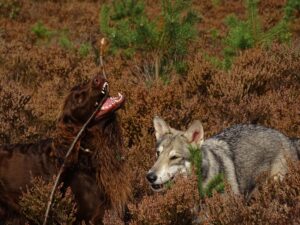








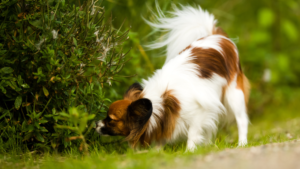

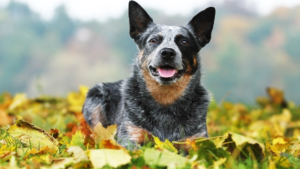
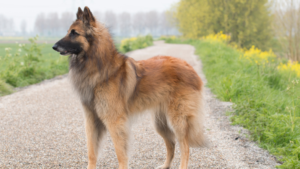
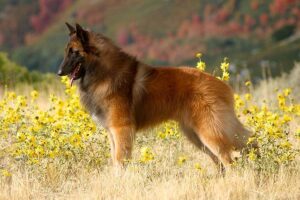


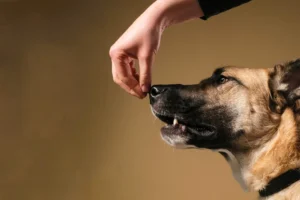
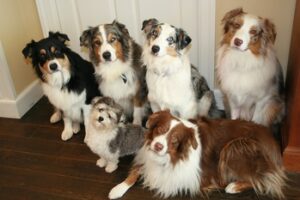


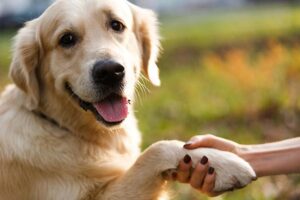



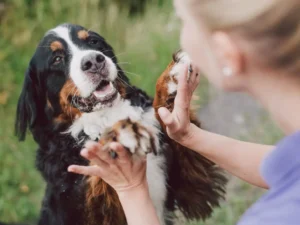











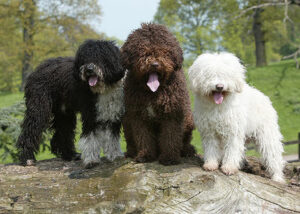
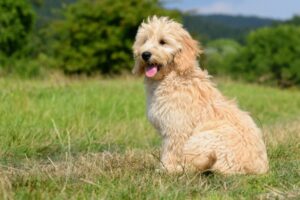
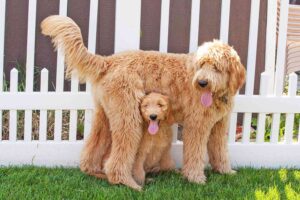

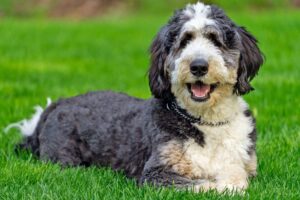
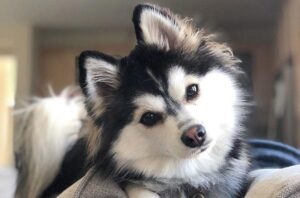
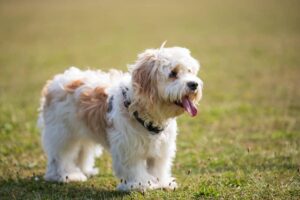
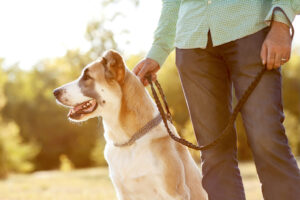

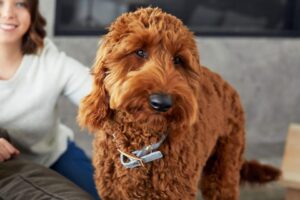




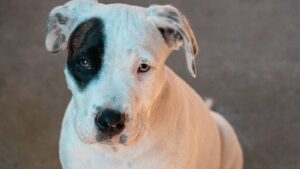
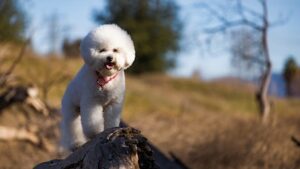
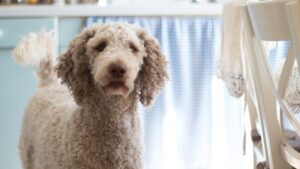
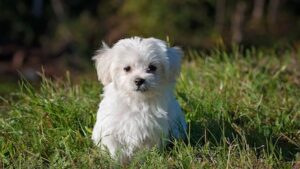
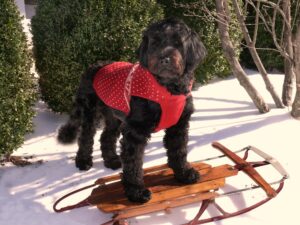
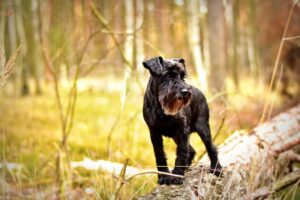
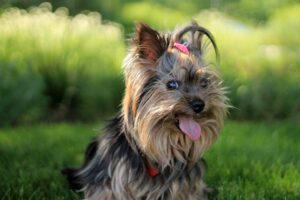
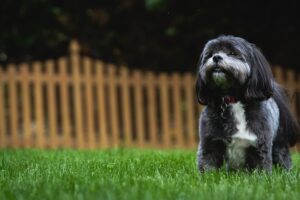
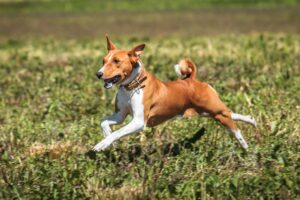

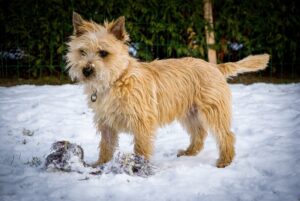
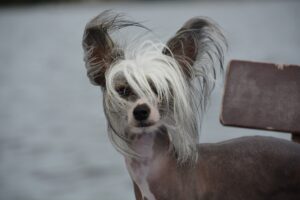
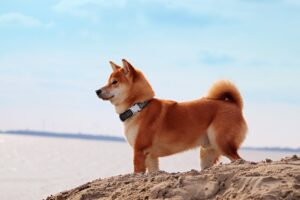
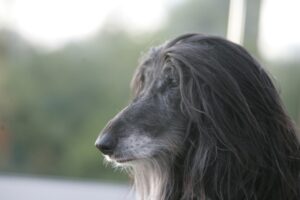
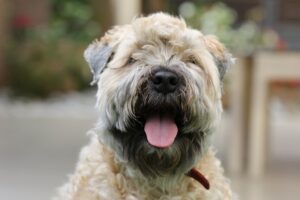
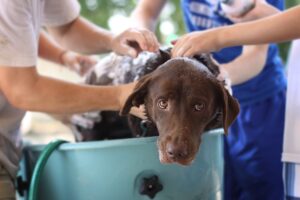
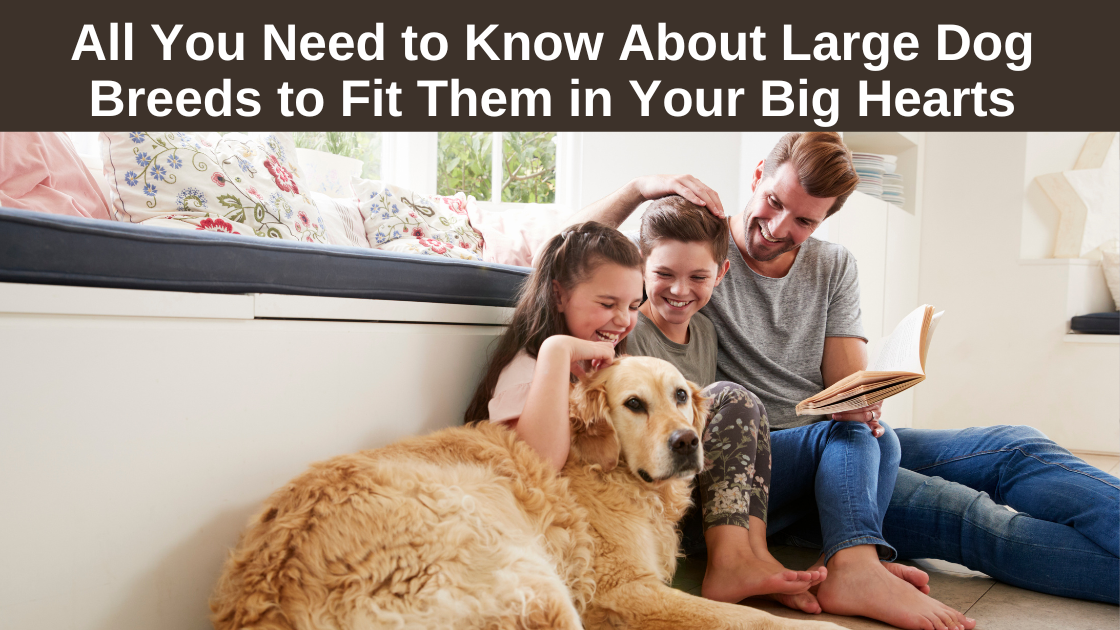
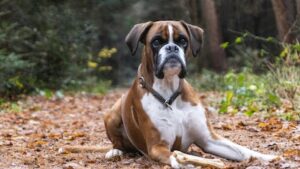
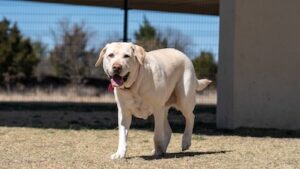
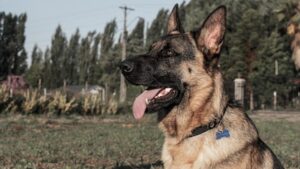
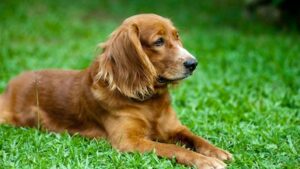


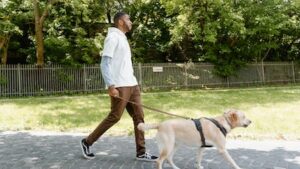
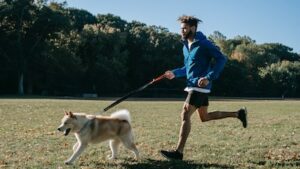
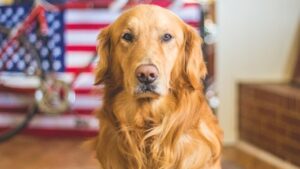
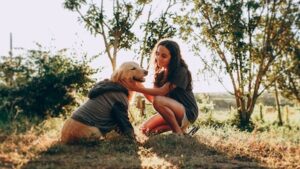

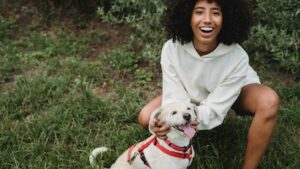 Supervision
Supervision